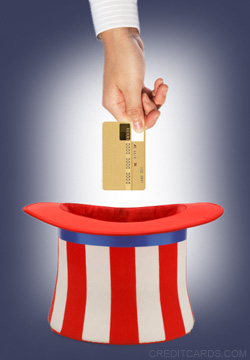|
Merchant Account Guide > Merchant Account News > A guide to merchant category codes
 Print  Email
A guide to merchant category codes
A merchant category code (MCC) is a four-digit number the credit card
industry uses to classify a merchant's business. Merchant category codes also allow credit
card companies -- and Uncle Sam -- to track and, in some cases, prohibit purchases.

In a nutshell, an MCC:
- Details the merchant's product or primary line of business.
- Can determine if a purchase should result in taxable action by the Internal
Revenue Service (via IRS Form 1099-MISC). For more data on how the IRS views
MCC transactions, check out sections 6041 and 6041A of the IRS tax code.
- Classifies what government regulators deem to be "higher risk" purchases (like
direct-marketing purchases).
Altogether, there are over 600 categories of MCC classifications running the
gamut from office supplies to home furnishing stores. You'll get your MCC when
you begin accepting credit card payments (the card issuer will assign you your
number). Your card carrier will report your number to the IRS and to your issuing
bank so it can be included in all bank statements and financial reports related
to your company.
Generally, the IRS differentiates between merchant products, which are not
taxable at the federal level, and professional services, which
are taxable. For example, for a music store that sells guitars (a product) and
guitar lessons (a service), the MCC will likely reflect the bulk of
that company's business (such as selling guitars).
It's important to know other companies' MCCs in addition to your own. If your business receives services from another company, you will have to report the payments that you make to that company to the IRS. However, you don't have to report payments for supplies. In order to determine which payments you are required to report and which payments are exempt, you will need to determine that company's MCC. Visa has published a handy online booklet on this topic that features on page 5 the IRS's list of merchant category codes, broken down by whether or not they are reportable to the IRS.
Interestingly, MCCs are also used to classify online gambling sites (code #7995). Many banks
automatically reject purchases for online gambling sites by consumers at the
merchant's point of sale (online gambling is illegal in the U.S.). But
fly-by-night gambling operators get around the MCC classification by fraudulently
declaring their status when they open up for business. For example, a gambling
operator can open up his or her business as one that sells car parts, then
change their business model to online gambling after receiving the MCCs. It's
up to credit card carriers to ferret out the fraudsters with help from network
banks.
Your credit card carrier deems your merchant classification code to be a
high-priority issue. Merchants who want to stay in line with proper government regulations and keep
the IRS -- and possibly federal law enforcement authorities -- off their back
should also make knowing their and other companies' merchant category codes a high priority.
See related: Back to School, Part 1: The major players in credit card transaction; Back to School, Part 2: Credit card processing, 4 key issues
Published: August 18,2025 Comments or Questions, Library of Stories
|




 Print
Print  Email
Email 